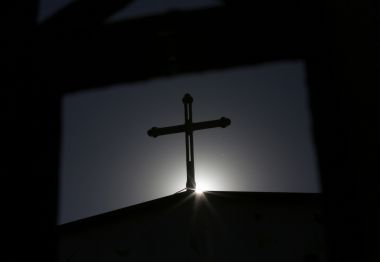China releases four pastors and two lawyers from 'black jail'

Six people, including four church pastors, have been released from detention in Zhejiang province on the east coast of China, China Aid has confirmed.
The Texas-based human rights organisation said yesterday that at least ten detainees remain in so-called 'black jails', which have no legal status. Official wording states that detainees are kept under "residential surveillance in a designed location". China Aid has noted that torture is common, and inmates are refused physical, written or verbal communication with family members or legal representatives.
The six were church leaders Zhou Jian, Huang Xiaoyuan, Cheng Chaohua and Wang Yunxian, and two legal assistants, Liu Peng and Fang Xiangui, who worked for human rights lawyer Zhang Kai. He is yet to be released.
Fang's lawyer said that he was "subjected to intense psychological pressure but not physical torture" while in detention.
Zhang has been missing since his arrest in August, and is one of almost 300 lawyers to be arrested in China since July 10. He had represented more than 100 churches fighting orders to remove their crosses amid a crackdown on places of worship. In July, he wrote and distributed a 'Cross Activists Handbook', advising church leaders on how they can use China's own constitution – which guarantees religious freedom – to defend their rights.
The deteriorating human rights situation in China was raised by activists in October as President Xi Jinping made his first state visit to London. Seen as taking a hard-line approach to various parts of civil society, Xi's leadership is cause for significant concern particularly among the religious community, Christian Today was told.
Civil rights activist Chen Guangcheng branded the demolition of church crosses "a public declaration of war to the international religious community". Up to 1,700 churches have been demolished or had their crosses removed in Zhejiang alone. It is thought that the province is being targeted because of its large Christian population, and there are fears that similar demolition campaigns may be rolled out in other parts of China.
The Communist Party is believed to be becoming progressively more suspicious of the influence of Christianity, which is experiencing significant growth in the country. Reports suggest that up to 10,000 people are becoming Christians every day and while there were just one million believers when Mao's Communist party came to power in 1949, there are now thought to be as many as 100 million. By 2030, one expert has estimated that China will be home to more Christians than any other country in the world.
China last year announced plans to introduce its own brand of national theology and in May 2015, Xi called for a curbing of outside influences. "We must manage religious affairs in accordance with the law and adhere to the principle of independence to run religious groups on our own accord," he said at a top-level CPC meeting. "Active efforts should be made to incorporate religions into socialist society."











